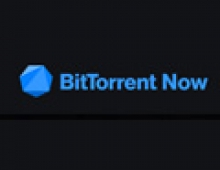
μTorrent v2.0 Stable Released
A stable version of the popular P2P file sharing client software μTorrent v2.0 was released yesterday.
For the first time, the world's most popular BitTorrent clients will be using the new μTP (or "uTP") protocol by default.
The effect of this should be very positive for end users:
(1) A μTorrent client no longer needs to be limited to some arbitrary rate limit for fear that it will saturate the connection and crowd out all other applications - μTP will take care of this automatically at the level of each packet transferred. On average this will likely result in actual average download speeds increasing across the board.
(2) Because the μTP protocol is designed to mitigate congestion on networks caused by poorly configured BT clients, it is possible that ISPs will take a friendlier view towards the protocol than they often take towards the older type of BT protocol. This *may* mean less BT throttling and faster download speeds for end users. "There?s some early anecdotal evidence that this is indeed the case, and certainly ISPs to whom we have presented the technology have so far reacted quite warmly," Simon Morris wrote at BitTorrent's official blog.
(3) μTP will mean that BitTorrent transfers are no longer the cause of congestion, and will enable the connections to automatically recover from a congested state much faster.
BitTorrent also anticipates that a large proportion of BitTorrent traffic will start to actively monitor packet transfer speeds for any indication that there is congestion on the line. If there is even a tiny amount of congestion, no matter what caused that congestion, μTP will immediately slow itself down and allow the congestion to clear.
Of course network congestion is not the only concern of network operators, and BitTorrent said that they would continue to support efforts to enable ISPs to communicate preferred routing policies to clients (for example through the IETF's ALTO working group).
The effect of this should be very positive for end users:
(1) A μTorrent client no longer needs to be limited to some arbitrary rate limit for fear that it will saturate the connection and crowd out all other applications - μTP will take care of this automatically at the level of each packet transferred. On average this will likely result in actual average download speeds increasing across the board.
(2) Because the μTP protocol is designed to mitigate congestion on networks caused by poorly configured BT clients, it is possible that ISPs will take a friendlier view towards the protocol than they often take towards the older type of BT protocol. This *may* mean less BT throttling and faster download speeds for end users. "There?s some early anecdotal evidence that this is indeed the case, and certainly ISPs to whom we have presented the technology have so far reacted quite warmly," Simon Morris wrote at BitTorrent's official blog.
(3) μTP will mean that BitTorrent transfers are no longer the cause of congestion, and will enable the connections to automatically recover from a congested state much faster.
BitTorrent also anticipates that a large proportion of BitTorrent traffic will start to actively monitor packet transfer speeds for any indication that there is congestion on the line. If there is even a tiny amount of congestion, no matter what caused that congestion, μTP will immediately slow itself down and allow the congestion to clear.
Of course network congestion is not the only concern of network operators, and BitTorrent said that they would continue to support efforts to enable ISPs to communicate preferred routing policies to clients (for example through the IETF's ALTO working group).




















